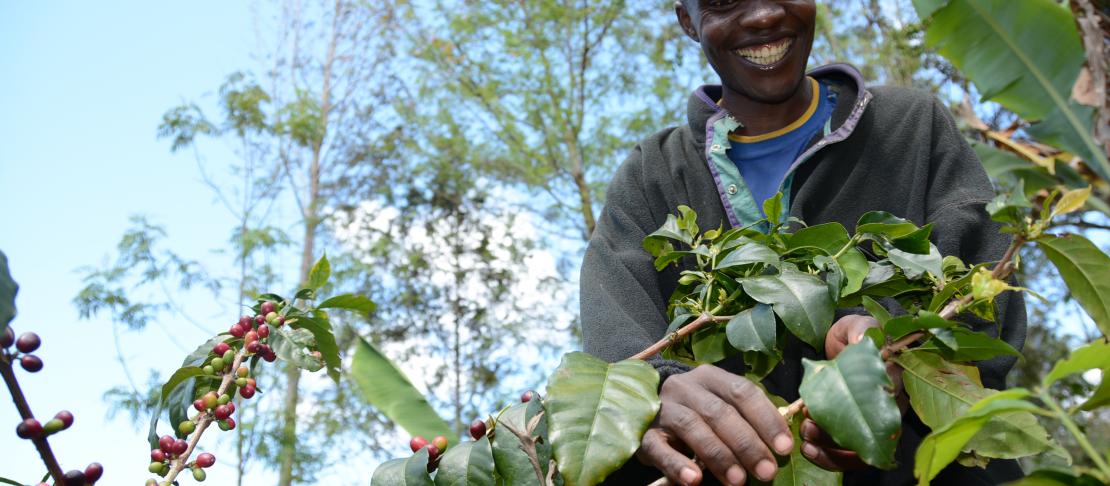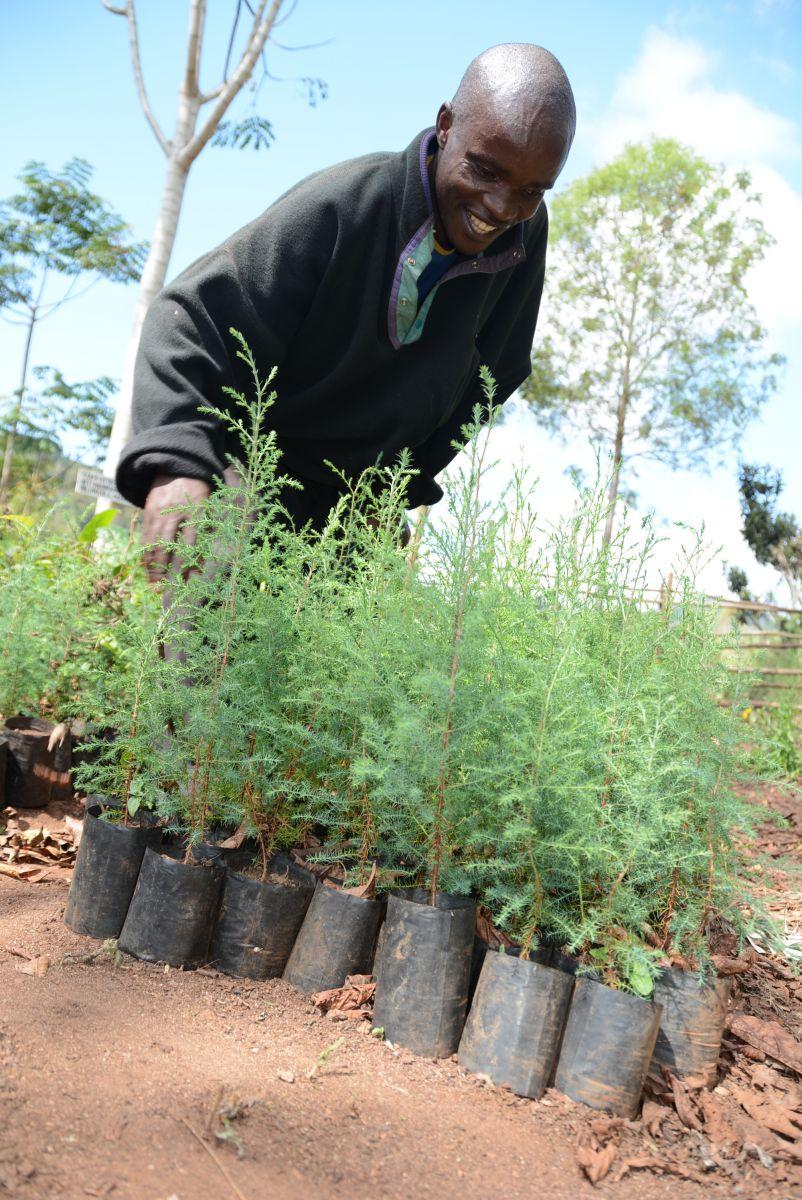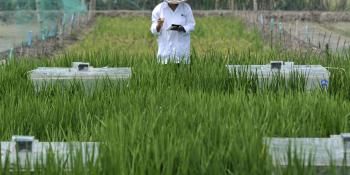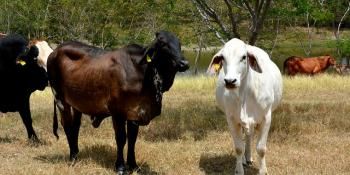Climate-smart farmer combats dry soil with tree power

Meet a smallholder who has tackled land degradation in Lushoto, Tanzania and is now reaping the benefits of improved yields and fertile land.
Lushoto is a densely populated area in the Usambara Highlands of Tanzania. The area is troubled by a number of challenges, including decreasing land sizes and land degradation from commercially driven deforestation. This is making farming very difficult.
One of the biggest challenges, however, is rampant soil erosion, which is decreasing soil fertility and putting farmers’ main livelihood and income at risk.
The Lushoto highlands are home to Peter Nyaki, a prolific climate-smart farmer who the CGIAR Research Program on Climate Change, Agriculture and Food Security (CCAFS) East Africa has had the pleasure to work with.
Sustainable land management
Peter has been able to overcome the rampant land degradation on his five acres of land through use of climate-smart interventions of agroforestry and soil conservation.
He learned these practices through KWAMAGA, a local Savings and Credit Cooperative Society (SACCO), offering climate-smart agriculture lessons and financial management services to smallholders in the community. CCAFS East Africa partnered with farmers and the Ministry of Agriculture, Food Security and Cooperatives (MAFC), Tanzania to establish community-based organizations which slowly morphed into registered SACCOs, which can provide more services to farmers and are better organized.
I was the first to try soil conservation in the valley. And recently I have noticed other farmers applying this conservation method too,” said Peter Nyaki when CCAFS met with him in September.
Peter Nyaki grows cypress, grevillea, agrocapusa, pine and eucalyptus trees from the Tanzania Forestry and Research Institute (TAFORI), who have partnered with CCAFS East Africa to ensure farmers to get tree seedlings. This becomes noticeable as his riverbank farm plot is the only one with trees along the river. The Napier and Lucina grass that he grows in his terraces is used to tackle soil erosion by preventing run off during the rainy season, while functioning as animal feed at the same time.
He has a farm in the highlands that is full of trees grown for commercial purposes. According to him,
the money that will come from the trees in the farm will be adequate for school fees and household running."
Peter has also donated a small part of his riverbank farm to the KWAMAGA SACCO, which is now home to a small tree nursery. Members share tree seedlings between them and sell the remaining seedlings, with the profits going back to the cooperative.
Peter nyaki tending to the tree seedling nursery which is hosted on his farm. Photo s.kilungu (ccafs)
Land conservation through tree planting and organic manure use is a major part of Peter Nyaki’s work and teachings.
He preaches the power of trees and organic manure to fellow farmers and encourages them to try it out, as it has had such a major impact on his own farm that has gone from low fertility to now hosting a variety of healthy crops.
Learn more about agroforestry: Farmers should use trees to cushion their farms from degradation
Improved crop varieties
As his soil has now improved he is testing a variety of crops that have been improved or are more drought-tolerant.
In the last harvest season, Peter got five sacks of beans after switching from the local bean varieties to the short-maturing Selian 97 bean variety from the Selian Agricultural Research Institute (SARI). He has had a 60% increase on yields compared to the local variety that he had been using previously. The bean was preferred in the market due to its good taste and nice colour.
I want to pull down my coffee plantation, because the climate in this region is no longer good for growing such crops, potatoes will surely give me better yields”,
says Peter who tried growing the crop which used to be popular in the highlands but is not doing so well anymore.
Since Peter Nyaki has been so open to other climate-smart practices, he will surely find other, more lucrative crops to plant. He has shown that he is fast in picking up new interventions, which in turn have helped him improve both his bean and potato yields.
CCAFS East Africa continues its work in Lushoto, Tanzania, developing and scaling up climate-smart agriculture practices within its innovative climate-smart village framework, where Peter Nyaki will help encourage and train others on what he has learned.
Other farmers will be able to see that the practices Peter has adopted have worked wonders on his farm will greatly increase the chances that other farmers will follow suit.
Access baseline surveys for the CCAFS Learning sites: Baseline Household Surveys 2010-2011
Solomon Kilungu is a Communications Assistant with CCAFS East Africa. Follow East Africa on Twitter: @Cgiarclimate_ea.
Story edited by Cecilia Schubert, CCAFS Communication Officer.




